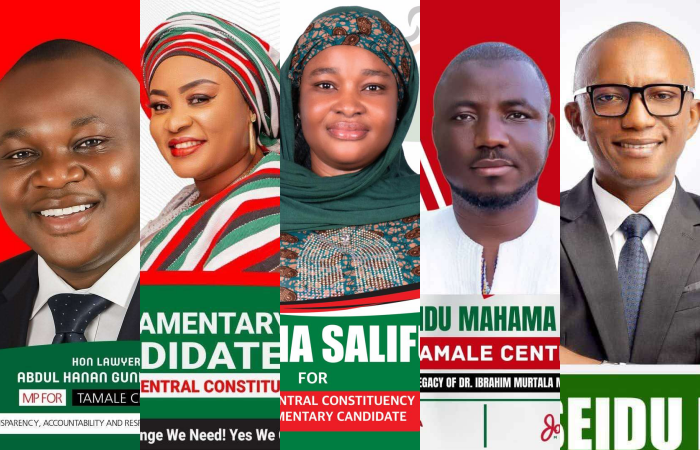The upcoming parliamentary by-election in Tamale Central, necessitated by the tragic demise of incumbent MP Ibrahim Murtala, has garnered significant attention, with fourteen aspirants vying for the seat within the National Democratic Congress (NDC) alone. The nomination process, initiated on August 22nd and concluding on August 24th, 2025, has witnessed a diverse range of individuals stepping forward to represent the constituency. The list includes academics like Prof. Alidu Seidu and Prof. Abdul-Razak Abubakari, legal professionals such as Lawyer Halid Abdul Rauf, medical practitioners like Dr. Seidu Mohammed and Dr. Abdul Rahaman Abdul Rashid, as well as seasoned politicians like Hon. Abdul Rahaman Hanan Gundadoo. This broad spectrum of aspirants reflects the constituency’s diverse demographics and the varied skill sets required for effective representation. The large number of contenders also underscores the perceived importance and influence associated with holding this parliamentary seat.
The competition within the NDC primaries is expected to be fierce, given the high stakes and the absence of the main opposition, the New Patriotic Party (NPP). In a significant move, the NPP has opted out of the by-election as a mark of respect for the late MP. This decision effectively transforms the by-election into an internal NDC contest, though independent candidates and those from other parties may still participate. The NDC’s internal vetting process will play a crucial role in shaping the final list of candidates eligible to contest the primaries. This internal competition will not only test the popularity and organizational strength of individual aspirants but also gauge the party’s ability to manage internal dynamics and present a united front to the electorate.
The Tamale Central constituency, a historically significant political stronghold in the Northern Region of Ghana, is now the focal point of national political attention. The outcome of this by-election is anticipated to have broader implications, potentially influencing the political landscape in the lead-up to the next general elections. The constituency’s demographics, characterized by a substantial youth population, along with its socio-economic challenges, will likely shape the central themes of the campaigns. Aspirants are expected to prioritize issues such as youth unemployment, access to quality education and healthcare, and improvements to critical infrastructure. The ability of candidates to effectively address these concerns and resonate with the electorate will be crucial to their success.
The absence of the NPP from the race introduces a unique dynamic to this by-election. While it simplifies the electoral landscape by reducing the number of major contenders, it also places greater scrutiny on the NDC’s internal processes and the eventual candidate chosen to represent the party. The by-election serves as a critical test of the NDC’s dominance in Tamale Central, demonstrating their ability to maintain a stronghold without the challenge of a major opposition party. The results will offer valuable insights into the NDC’s organizational strength, voter mobilization capabilities, and the resonance of their message within the constituency. It will also be an opportunity for the NDC to showcase its vision and agenda for the region and the nation.
The diverse profiles of the aspirants, ranging from experienced politicians to newcomers with varied professional backgrounds, further enrich the narrative surrounding this by-election. Each candidate brings unique perspectives and potential strengths to the table, adding complexity to the electoral calculus. The primaries will be a crucial proving ground for these aspirants, testing their ability to garner support within the party and build a strong campaign machinery. The electorate will have the opportunity to assess the candidates’ qualifications, platforms, and leadership qualities, making informed choices based on their perceived ability to effectively represent their interests.
Beyond the immediate implications for Tamale Central, this by-election holds broader significance for Ghana’s political landscape. It serves as a microcosm of national political trends and provides a platform for emerging leaders and policy discussions. The issues highlighted during the campaign will likely resonate across the country, informing broader national debates. The by-election’s outcome will also be closely monitored for any potential shifts in voter preferences and their implications for future elections. The heightened national attention underscores the importance of this local contest within the larger context of Ghanaian politics. The Tamale Central by-election, therefore, represents more than simply filling a vacant parliamentary seat; it is a significant political event with potential ramifications for the nation’s political future.














